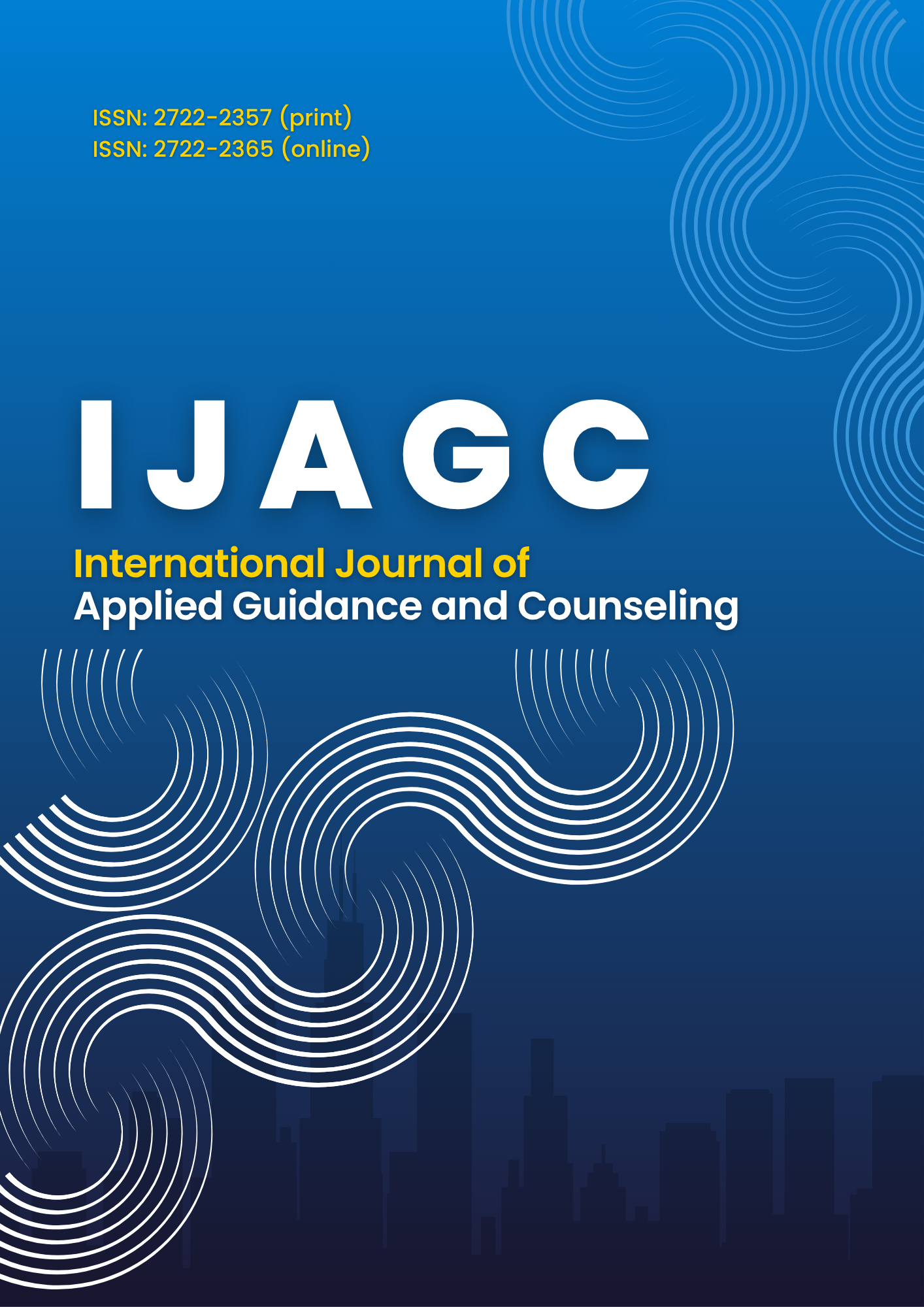Help-Seeking Attitudes and Academic Stress Among Undergraduate Students
DOI:
https://doi.org/10.26486/ijagc.v6i1.4643Abstract
University students' mental health and academic performance are significantly impacted by academic stress. This study looked at the academic stress levels, counseling experiences, emotional support networks, and help-seeking attitudes among 102 Indonesian undergraduate students between the ages of 19 and 24. The majority of students (71.6%) chose to ask friends for help, followed by parents (29.4%) and self-help (21.6%), according to the findings. Approximately half (52%) had sought counseling services, mostly in high school or college. Although some students expressed displeasure, the majority of counseling experiences were viewed as beneficial (60.4%). Only 4.9% of students reported high levels of academic stress, compared to the majority (81.4%) who reported moderate levels. Students who attended counseling did not significantly differ from those who did not in terms of their academic stress. This can happen due to limited respondents. While older students were more likely to seek therapy, stress levels and age did not significantly correlate. The results underline the value of peer support and draw attention to obstacles like stigma and accessibility that prevent people from formally seeking help. To further promote student well-being and academic success in Indonesian higher education, the study suggests expanding peer support programs, raising mental health awareness, and improving culturally relevant counseling services.
Downloads
Published
Issue
Section
License
Copyright (c) 2025 Natri Sutanti

This work is licensed under a Creative Commons Attribution-ShareAlike 4.0 International License.
Authors who publish with IJAGC: International Journal of Applied Guidance and Counseling agree to the following terms:
Authors retain copyright and grant the Insight right of first publication with the work simultaneously licensed under a Creative Commons Attribution License (CC BY-SA 4.0) that allows others to share (copy and redistribute the material in any medium or format) and adapt (remix, transform, and build upon the material) the work for any purpose, even commercially with an acknowledgement of the work's authorship and initial publication in Insight. Authors are able to enter into separate, additional contractual arrangements for the non-exclusive distribution of the journal's published version of the work (e.g., post it to an institutional repository or publish it in a book), with an acknowledgement of its initial publication in Insight.
Authors are permitted and encouraged to post their work online (e.g., in institutional repositories or on their website) prior to and during the submission process, as it can lead to productive exchanges, as well as earlier and greater citation of published work (See The Effect of Open Access).












